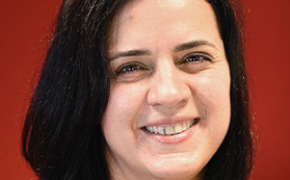Innovative self-monitoring system for elderly with miniaturized wearable wellbeing sensors connected to an easy-to-use, simplified website specialized for them
Ageing demographics and the declining health of elderly citizens put unaffordable pressures on care systems and societies, meaning that change and innovation are required. Seniors want to live in their own homes for as long as possible, but some of them experience barriers and need special care and help in their daily activities.
CoME is a service-oriented platform which aims at developing solutions that empower seniors with Mild Cognitive Impairment (MCI) in a social context, to improve and manage their personal lives.
The proposal addresses relevant challenges such as health self-management and increases and facilitates the supply of formal and informal care for seniors in need.
CoME research and development efforts are based on a platform resulting from AAL MyGuardian project (2012-2015) and will extend it with new functionalities in order to provide care givers with a better evaluation of senior's state.
The CoMe platform will include an analysis on the information/data obtained from the seniors: detection of anomalies, analysis of temporal aspects and early detection of risky behaviours. Specific guidelines and tutorials will be available for seniors and caregivers.
The most innovative function of the proposed solution is the match-making possibility based on seniors’ state and personal parameters to decide when is the intervention going to be provided and by whom (formal or informal caregiver).
Resources needed
1.236.773 €. It is supported by resources coming from the National Research and Innovation Funds with 100% funding rate in the case of end-user organizations like PBN.
78 health-monitoring devices are used by seniors.
Evidence of success
The CoME platform has 3 different interfaces developed for seniors, informal and formal caregivers. It has been tested by more than 160 end-users, more than half of them are seniors, who either supported the process or tested the platform in their daily lives with measuring devices (fitness bracelets etc ).
Based on their opinion derived from questionnaires, most seniors became very motivated to achieve a healthier lifestyle with more physical activity since they started to monitor themselves.
Difficulties encountered
It was a challenge to find seniors with devices compatible with the health trackers (smartphone, laptop or PC was needed with up-to-date softwares) in some countries.
IT literacy of the seniors is also crucial, although informal caregivers usually help them handle their devices.
Potential for learning or transfer
Since our health care systems are getting more and more overloaded with time, it is important to prioritize prevention. That is what CoME aims to achieve with focusing on elderly generation.
Just as the health care system organizations, nowadays people are also getting busier and busier, and often do not have much time to get to know their seniors’ needs and help them sufficiently and properly.
That is why the results of CoME could be useful for all groups within our communities, because, of course, there are some differences between seniors depending on the area they live in, but all-around Europe they usually have similar problems to solve and diseases to try to avoid.
With the results of CoME, it could be easier to understand their situation and get to know their average health condition.
Tags: Ageing, Health, Monitoring








